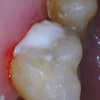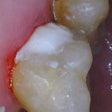A new study in the Journal of Oral Implantology has yielded data about which characteristics of both patient and surgeon can affect the success of dental implants (October 2012, Vol. 38:suppl 1, pp. 469-477).
Researchers from Loma Linda University School of Dentistry evaluated the success of 50 patients who received implant-supported fixed complete dentures. Encompassing a total of 297 implants, the retrospective study spanned 10 years, with a mean time of three and a half years from surgery to last follow-up.
The study examined failure rates for factors including type of prosthesis, surgeons' experience level, smoking, diabetes, bruxism, and implant location (maxillary or mandibular).
The researchers found that patient risk factors such as grinding teeth or diabetes increase the odds of implant failure. They also associated higher implant failure rates with surgeons who have less than five years of experience.
The failure rate was 12% among surgeons with less than five years of experience, the study authors noted. The number of surgeries performed by the oral surgeon also had an impact on the success of the implants, as did the complexity of the surgery required. Implants placed by surgeons who had previously performed less than 50 implants were twice as likely to fail.
Interestingly, the effect of smoking was insignificant, the researchers found. Bruxism, most often during sleep, can affect bone loss and implant failure. However, more than 28% of patients with diabetes suffered implant failure, while 29% of patients with a dental history of bruxism in this study experienced implant failure.
Traditional implant guidelines requiring a healing period of three to six months before functional loading of dentures are giving way to immediate loading of a functional prosthesis. The success rates of these two methods are comparable, although this study found a slight advantage for the traditional approach.
An implant was considered successful if no implant loss occurred and bone loss was less than 4 mm as assessed by periapical radiograph. Overall, the study found a better than 90% absolute success rate for implant-supported fixed dentures and an 85% cumulative implant success rate.
The implant failures in this study appeared to be affected by patient risk factors, such as diabetes, rather than by implant-related factors, such as location and length of implant, the researchers concluded.



















